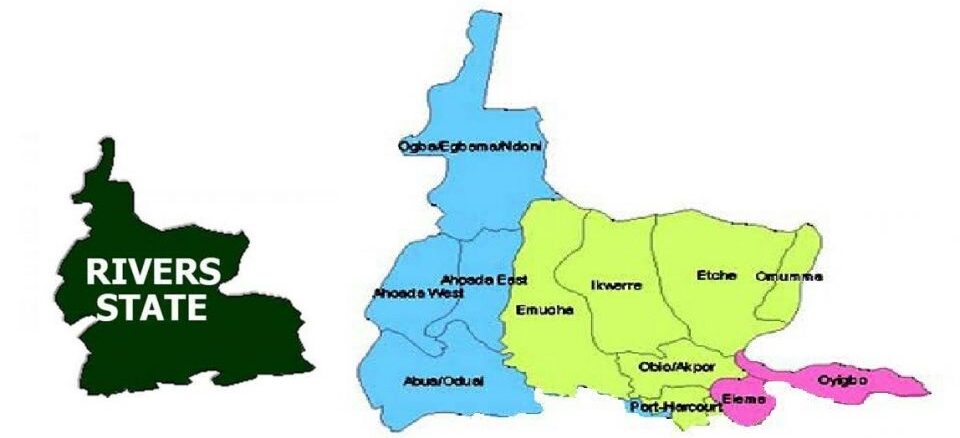BRIEF HISTORY ON RIVERS STATE
Rivers State was created on May 27, 1967 by a military Decree and named after the many rivers that border its territory. Being a part of the Oil Rivers Protectorate, the State was created to promote development, and support the proper identification of the Riverine people as a distinct group. Rivers State borders Imo and Abia States to the north, Akwa Ibom State to the east, and Bayelsa and Delta States to the west. The State capital, Port Harcourt, is a metropolis that is considered the commercial center of the Nigerian oil industry.
RIVERS STATE LGAS, TRIBES, ETHNICITY, AND BELIEFS.
In Rivers State, over 26 distinct groups are recognized by the state government, each with its own language, lifestyle, and cultural heritage. The dominant ethnic groups are: Ogoni, Ijaw and Ikwerre. Upland Rivers State covering about 45% is composed mainly of Ogoni and Ikwerre. The riverine, including most of the state, towns and villages surrounded by water is moderately inhabited covering about 23 local government areas. Rivers State is a diverse state that is home to many ethnic groups and is particularly noted for its linguistic diversity, with 28 indigenous languages said to be spoken.
Among the many outstanding attributes of the state, one of which is worthy of mention is the many beautiful tourist sites to behold. These include the Cultural Centre, Port Harcourt; Finima Beach, Port Harcourt; Tourist Beach, Statue of King Jaja of Opobo. Others are: Port Harcourt Pleasure Park, Elechi Beach, Bonny Island, SPAR Shopping Complex, and the Port Harcourt Zoo.
Exclusively the Ikwerre people worship the earth goddess (Ali Earth).

